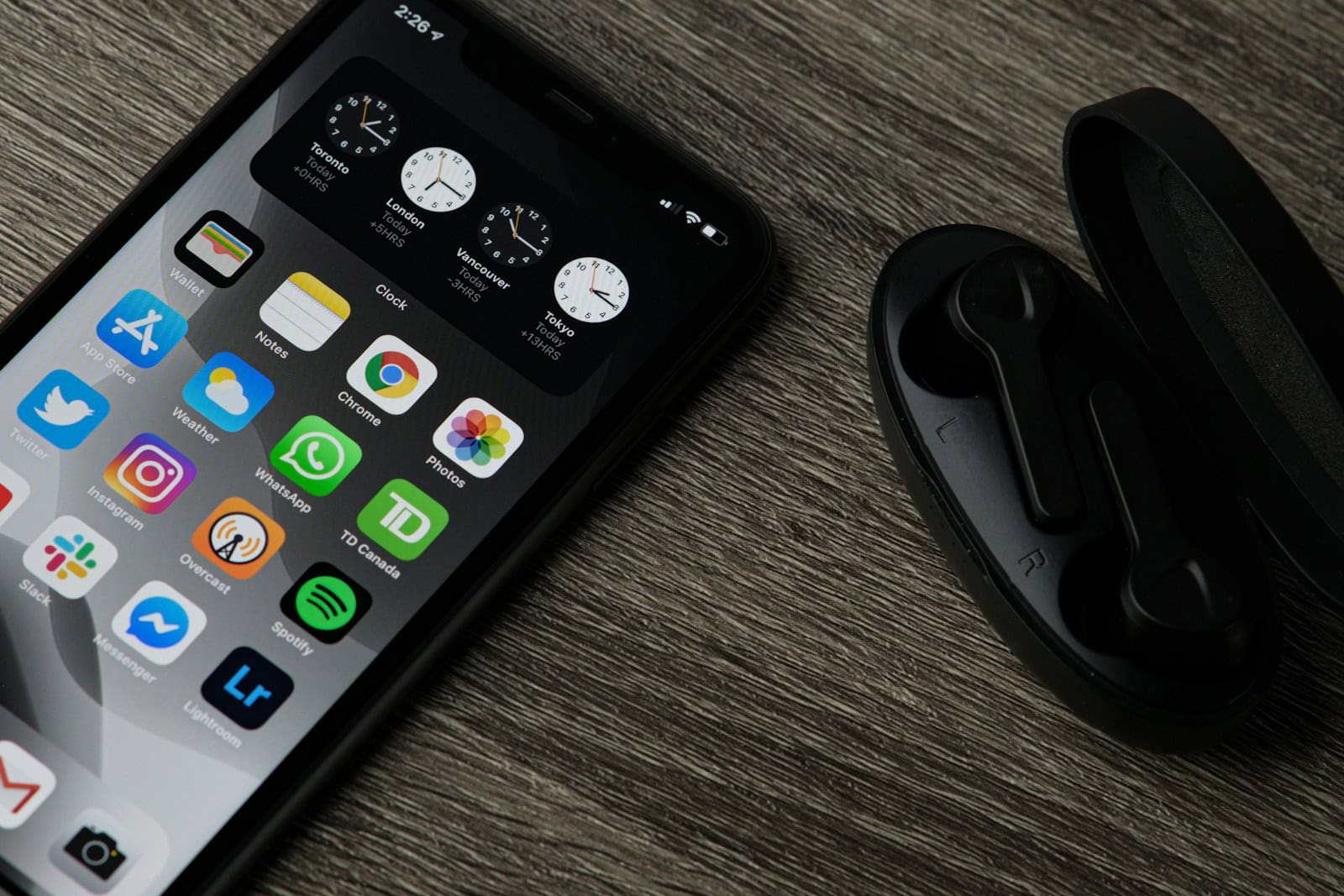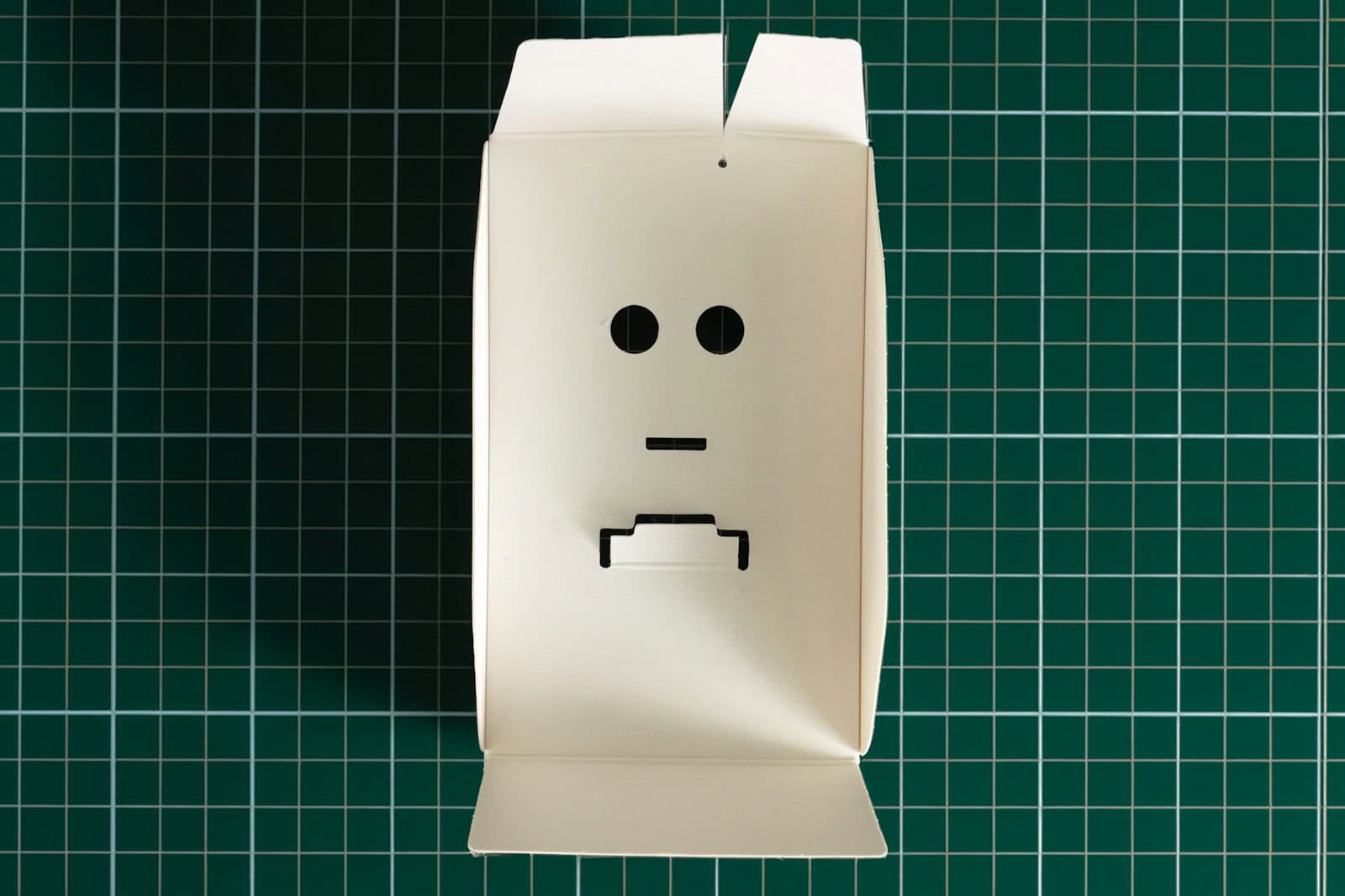Apps to Track Habits and Stay Mindful: 12 Life-Changing Tools That Actually Work
 My coworker opened her phone yesterday and scrolled through 18 different habit apps. She had downloaded them over the past eight months trying to track habits consistently.
My coworker opened her phone yesterday and scrolled through 18 different habit apps. She had downloaded them over the past eight months trying to track habits consistently.
She wasn’t using any of them anymore.
“I keep thinking the next app will finally make me stick to my routines,” she said. “But I just end up feeling overwhelmed and quitting after a few days.”
Most apps to track habits are designed to impress you during the first week, not help you succeed for months. They’re packed with features that look amazing but actually make consistency harder.
The apps that work focus on one thing: making it incredibly easy to track habits without thinking too hard about it.
When you find the right tool for your brain, tracking becomes as automatic as checking the time on your phone.
Why Most Apps to Track Habits Don’t Work
 Most habit apps try to do everything at once. They have charts, graphs, streaks, social features, reminders, rewards, and detailed analytics. This sounds impressive but usually creates decision fatigue.
Most habit apps try to do everything at once. They have charts, graphs, streaks, social features, reminders, rewards, and detailed analytics. This sounds impressive but usually creates decision fatigue.
Your brain doesn’t need fifty features to track habits successfully. It needs one simple thing done really well: recording whether you completed something or not.
The apps that help you track habits long-term focus on simplicity and satisfaction rather than bells and whistles. They make the tracking moment so quick and rewarding that you actually look forward to it.
Another major problem is perfectionism pressure. Many apps make you feel like a failure when you miss a day. Red X marks for missed habits. Broken streaks that reset to zero. Disappointed virtual characters.
But research shows that positive reinforcement works much better than guilt for building habits. The most effective apps to track habits celebrate small wins and make progress feel genuinely good.
The final issue is trying to track too many things simultaneously. Most successful people track one to three habits maximum. More than that becomes overwhelming and ultimately unsustainable for busy lives.
How Your Brain Responds When You Track Habits
![]() When you check off a completed habit in an app, your brain releases a small burst of dopamine. This creates a positive association with the behavior, making you more likely to repeat it tomorrow.
When you check off a completed habit in an app, your brain releases a small burst of dopamine. This creates a positive association with the behavior, making you more likely to repeat it tomorrow.
Smart apps to track habits use this natural reward system intentionally. They make the check-off moment satisfying with pleasant animations, sounds, or visual feedback that feels good.
This isn’t manipulation or trickery. It’s working with your brain’s natural learning patterns. The same way video games keep you engaged through small, frequent rewards and achievements.
Visual progress tracking also helps your brain recognize patterns over time. You might notice that you exercise more consistently on certain days or sleep better after specific evening routines.
The awareness piece becomes crucial too. Before using apps to track habits, most people have no clear idea how consistent or inconsistent their behaviors actually are throughout the week.
Apps provide objective data about your patterns instead of relying on fuzzy memory or wishful thinking about your consistency.
But the tracking itself changes your behavior significantly. When you know you’ll log something later, you become more mindful about your choices throughout the entire day.
12 Apps That Actually Help You Track Habits Successfully
 After testing dozens of habit apps and talking to people who’ve used them for months, these twelve consistently deliver real results. They focus on what works rather than what looks impressive.
After testing dozens of habit apps and talking to people who’ve used them for months, these twelve consistently deliver real results. They focus on what works rather than what looks impressive.
Simple and Effective Tracking
- Streaks (iOS) Clean, minimal design with exactly what you need to track habits. Add your behaviors, mark daily completion, see your progress. No overwhelming features or complicated setup procedures.
Why it works: The interface is so simple that tracking takes under ten seconds. Visual streaks motivate you to keep going. No guilt or shame for missed days – just gentle encouragement to restart.
Best for: People who like simplicity and get motivated by seeing continuous progress.
- Productive (iOS/Android) Beautiful design with customizable scheduling options. You can set habits for specific days or times that work with your actual schedule. Simple swipe gestures make tracking effortless.
Why it works: Flexible scheduling matches how real life actually works. The interface feels like a satisfying game without being childish. Quick and genuinely satisfying to use daily.
Best for: People with irregular schedules or habits that don’t happen every single day. Visual learners who appreciate clean, thoughtful design.
- Habitify (iOS/Android) Good balance of useful features without overwhelming complexity. Detailed options to track habits with a simple interface. Can handle multiple types of behaviors and goals.
Why it works: Covers different habit types (daily, weekly, custom) without getting confusing. Perfect for people who want slightly more features than basic apps provide.
Best for: People who want some analytics and flexibility but still prefer simple, clean interfaces. Good middle ground between basic and complex tracking systems.
Mindfulness Integration
- Headspace (iOS/Android) Famous meditation app that helps you track habits automatically. Guided sessions from three to sixty minutes. Progress tracking built seamlessly into the meditation experience.
Why it works: No separate tracking needed – the app knows when you meditate and celebrates milestones naturally. Expert guidance makes meditation accessible for beginners.
Best for: Beginners who want guided meditation with automatic habit tracking. People who prefer structure and expert instruction over going it alone.
- Calm (iOS/Android) Meditation and sleep app with gentle habit tracking features. Daily sessions, sleep stories, and breathing exercises. Beautiful nature sounds and peaceful visuals.
Why it works: Makes mindfulness feel peaceful rather than like another item on your to-do list. Automatic tracking reduces friction. Multiple content types prevent boredom.
Best for: People seeking stress relief and better sleep quality. Anyone who finds traditional meditation apps too serious or clinical feeling.
- Insight Timer (iOS/Android) Free meditation app with optional habit tracking capabilities. Thousands of guided sessions and a timer for silent meditation. Community features available but not required.
Why it works: Completely free with excellent, high-quality content. Flexible approach works for beginners and experienced meditators alike.
Best for: Budget-conscious users who want quality meditation content. People who like community support and variety in their practice.
Gamification and Motivation
- Habitica (iOS/Android) Turns your habits into a role-playing game experience. You earn points and rewards for completing tasks. Your avatar gets stronger or weaker based on your consistency.
Why it works: Makes habit building genuinely fun instead of feeling like tedious work. Strong motivation for people who enjoyed video games. Social features add helpful accountability.
Best for: People motivated by games and rewards systems. Anyone who finds traditional habit tracking boring or uninspiring to use consistently.
- Forest (iOS/Android) Helps you focus by planting virtual trees during work sessions. You plant a tree and it grows while you stay focused. If you leave the app to check social media, the tree dies.
Why it works: Creates a physical barrier to distraction and procrastination. The growing tree provides gentle motivation to stay focused. Simple concept that’s surprisingly effective for most people.
Best for: People who struggle with phone distractions during work. Students or remote workers who need focused sessions.
Advanced but User-Friendly
- Way of Life (iOS/Android) Color-codes your entire day to show how you actually spent your time. Mark activities as positive, negative, or neutral behaviors. Creates visual patterns of your daily choices.
Why it works: Shows the big picture of how you actually spend time each day. Color coding makes patterns obvious at a glance.
Best for: People who want to understand their time usage patterns clearly. Visual learners who like seeing data in colorful, simple formats.
- Strides (iOS) Tracks different types of goals and habits with beautiful progress charts. Can handle daily habits, project goals, and average targets. Good analytics without overwhelming complexity.
Why it works: Flexible goal types match how different habits actually work in real life. Progress charts are motivating without being overwhelming or confusing.
Best for: People who want some data and analytics but still value clean design. Goal-oriented users who track habits across multiple areas.
Awareness and Mindful Living
- Moment (iOS/Android) Tracks phone usage automatically and shows which apps you use most frequently. Sometimes simple awareness alone is enough to change behavior patterns completely.
Why it works: Automatic tracking requires no effort to track habits. Often shocking to see actual usage patterns.
Best for: People who suspect they use their phone too much. Anyone wanting to be more intentional about screen time and app usage throughout the day.
- RescueTime (iOS/Android/Desktop) Automatically tracks time spent on different apps and websites across all devices. Categorizes activities as productive or distracting. Provides detailed reports on focus patterns.
Why it works: Completely automatic tracking across all devices you use. Shows exactly where your time goes without any manual input required.
Best for: People who work on computers and want to understand their productivity patterns. Anyone serious about time management and focus improvement.
How to Choose the Right App to Track Habits
The best app to track habits depends on your specific personality and preferences. Here’s how to match your brain with the right tool for success.
If you love simplicity: Start with Streaks or Productive. These focus on basic tracking without overwhelming features or complexity. Clean design, simple interaction, clear progress visualization.
If you need extra motivation: Try Habitica or Forest. These apps make it more engaging to track habits through games or visual elements. Good for people who find plain tracking boring.
If you want mindfulness integration: Headspace, Calm, or Insight Timer work best. They combine the ability to track habits with actual mindfulness content and expert guidance.
If you like data and analytics: Way of Life, Strides, or RescueTime provide more insights and pattern recognition. Good for people who want to understand their behaviors deeply.
If you’re easily overwhelmed: Stick with single-purpose apps like Streaks or Forest. Avoid apps with too many features or complicated setup processes that create decision fatigue.
If you’re competitive by nature: Habitica has social features and challenges. Some people thrive on comparing progress with friends or online communities for accountability.
If you forget things easily: Choose apps with gentle reminder systems. But don’t rely on notifications alone – build tracking into existing routines you already do.
The key is starting with just one app and focusing on one behavior for at least thirty days.
Common Mistakes That Prevent Success When You Track Habits
 Even excellent apps won’t work if you use them incorrectly. Here are the biggest mistakes people make and how to avoid them completely.
Even excellent apps won’t work if you use them incorrectly. Here are the biggest mistakes people make and how to avoid them completely.
Tracking too many behaviors at once. Your brain can only handle one to three new habits at a time. More than that creates overwhelm and leads to giving up.
Choosing habits that are too ambitious initially. “Exercise for an hour” is much harder to track habits consistently than “do ten pushups.” Start smaller than feels worthwhile.
Forgetting to track daily consistently. Apps only work if you actually use them regularly. Link tracking to an existing routine like drinking morning coffee or brushing teeth.
Getting discouraged by missed days. Everyone misses days sometimes – that’s completely normal. The goal is consistency over time, not perfect execution every single day.
Focusing on the wrong metrics entirely. Streaks are motivating but not the ultimate goal. Focus on overall progress and how habits improve your actual life quality.
Not customizing the app for your lifestyle. Most apps have settings you can adjust. Take time to set up reminders, scheduling, and features that match your actual routine.
Treating the app like the habit itself. The app is just a tool to track habits. Don’t let complex app features distract from actually doing the behaviors you want to build.
Making Apps Work Long-Term to Track Habits
People who successfully use apps to track habits for months or years follow specific strategies that casual users typically miss entirely.
Start with keystone habits that create ripple effects. Pick behaviors that naturally lead to other good choices. Exercise often improves sleep and eating. Meditation tends to increase patience and focus.
Track the minimum viable version of each habit. Instead of “read for thirty minutes,” track “read one page.” You can always do more, but you’ll never do less than your minimum.
Connect tracking to existing routines you already do. The best time to check your app is right after something you already do daily. Morning coffee, evening teeth brushing, lunch preparation.
Use the app’s motivational features intentionally. If an app has streaks, celebrations, or progress charts, pay attention to them. These features exist because psychological research shows they work.
Review your progress weekly, not just daily. Don’t just track habits in the moment. Look at weekly patterns to identify what helps or hurts your consistency over time.
Adjust your approach as needed. If a habit feels too easy or too hard after a few weeks, modify it. Apps should support your growth, not limit your progress.
Celebrate small wins and progress. Acknowledge improvement even if it’s not perfect execution. Completing five out of seven days is dramatically better than zero out of seven.
The goal isn’t perfect tracking or flawless execution. It’s building behaviors that improve your life with the app as a helpful supporting tool.
Integrating Apps with Real Life to Track Habits
The most successful people don’t just track habits in isolation. They integrate the tracking seamlessly into their existing routines and lifestyle patterns.
Use tracking as a mindfulness trigger. When you open the app to track habits, use it as a moment to check in with yourself. How are you feeling? What do you need today?
Share progress with supportive people. Some apps have social features, but you can also share screenshots or updates with friends and family who encourage your growth.
Review patterns for deeper insights. Look for connections between different habits and life events. Does stress affect your consistency? Do certain days work better than others?
Adjust your environment based on what you learn. If tracking shows you exercise more when your gym clothes are visible, use that information to set up your space better.
Use data to make better decisions. When you can track habits objectively, you make choices based on evidence rather than emotions or wishful thinking about your consistency.
The app becomes a tool for self-awareness and intentional living, not just a digital checklist to complete mindlessly each day.
Conclusion
The right app to track habits can transform your daily routines and help you build lasting positive changes. But success depends on choosing tools that match your personality and using them strategically.
Start simple with just one habit and one app that feels right for your brain. Focus on consistency rather than perfection.
Remember that apps are just tools to track habits – the real work happens when you actually do the behaviors you’re monitoring. But good tools make that work significantly easier and more enjoyable.
Try this today: pick one habit you want to build consistently and download one app from this list that matches your style and preferences. Set it up and commit to tracking for just one week.
Most people are surprised by how much awareness and motivation simple tracking provides when done correctly. You might discover the same thing.
Your future self will thank you for the small, consistent actions you track and build starting today.
Which app sounds most appealing for your current situation and goals? What habit would you most like to track consistently over the next month?
The Hidden Pain Behind Toxic Traits: Where They Come From (Part 2)






